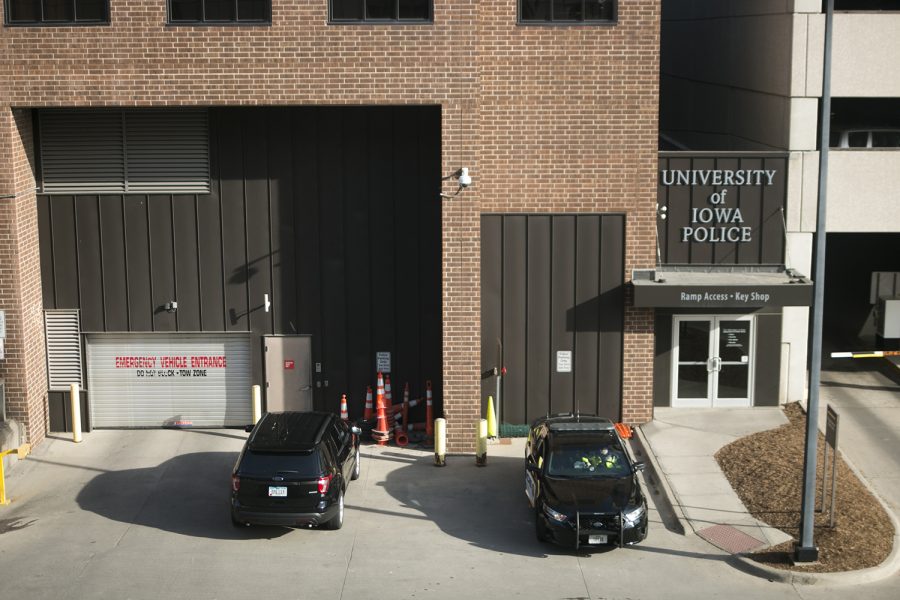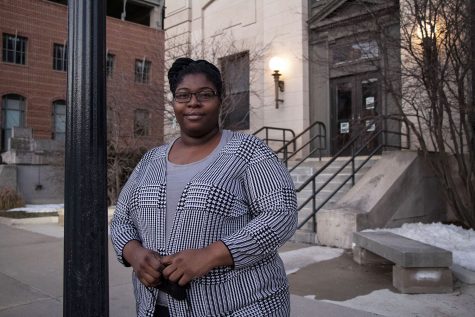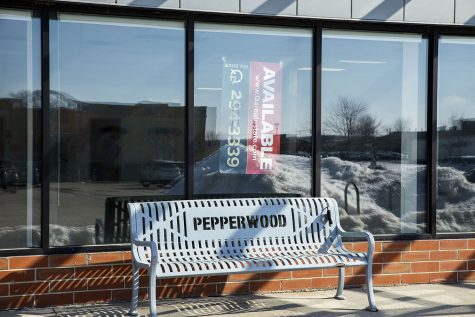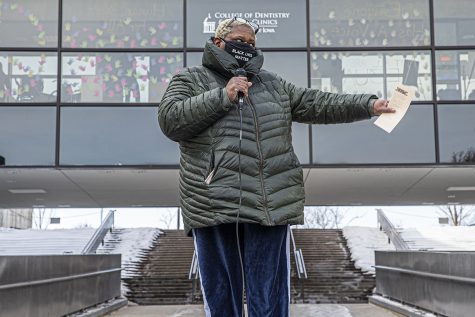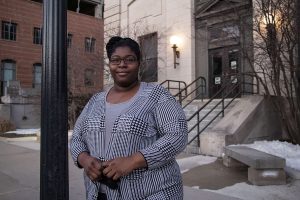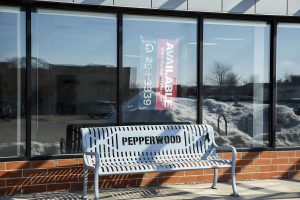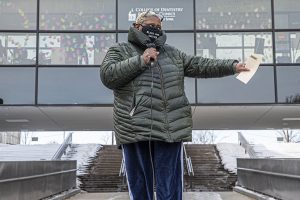UI Reimagining Public Safety Committee allows public feedback
Previously open to University of Iowa students, staff, and faculty only, the Reimagining Campus Safety committee has opened up feedback to the public.
The University of Iowa Department of Public Safety is housed in the Old Capitol Mall.
March 2, 2021
The University of Iowa Reimagining Campus Safety committee is now accepting feedback from the public about campus security, after previously only allowing students, faculty, and staff to provide feedback and view proposals to changes to the UI Police Department.
The committee has developed three potential systems. Two virtual town halls were held in February, which were only available to those with a HawkID. Feedback is open until Friday — then the committee plans to analyze feedback and make a recommendation to UI President Bruce Harreld on the path forward for campus safety.
As previously reported by The Daily Iowan, the majority of students who attended the town halls favored a holistic model. That model states that UI Police Department would only intervene if there were threats of serious harm, and would divert service calls to other professionals.
Executive Director of the Iowa Freedom of Information Council Randy Evans said while making the feedback available to all was the right call, the UI should have opened up feedback to the community sooner, as alumni, sporting event attendees, and Iowa City residents could be affected by the change.
“There are people in Iowa City who are on campus every day who aren’t students or aren’t employed by the university,” Evans said. “All of these people were being kept in the dark, and they have a stake in what campus security will look like going forward. They were not being allowed to know what was being discussed or to offer their feedback.”
Evans said the town halls sealed the general public away from important information that affects them as well.
“It is regrettable that it took this long for the general public to be included. I am troubled by the refusal of the university to allow reporters who are not UI students to attend the town hall gatherings,” Evans said. “The UI belongs to all of the people of Iowa, it doesn’t just belong to administrators, faculty, staff, and students. It’s unfortunate that it took this long for it to occur.”
Following the death of George Floyd, police reform has become a forefront debate nationwide. In Iowa City, the Iowa Freedom Riders advocate led protests to restructure the UI Police Department and the Iowa City Police Department.
UI senior Ala Mohamed, a member of the Iowa Freedom Riders, said reform is needed because current policing institutes and practices disproportionately affect African American students on campus. Black students make up 3.1 percent of UI’s enrollment. But according to data released this fall, Black people were in 38 percent of documented incidents of use of force by the UI police.
“[The current campus security system] harasses African Americans constantly downtown, whether they are having a night out at the bar or they are going to class,” Mohamed said. “When I look at that system, the only thing I am seeing is the police who aren’t really catering to BIPOC.”
Mohamed said the holistic model is the best approach to campus security, and that retraining police is not enough, and they must be completely defunded.
“You cannot continue to build on a system that has started out racist,” Mohamed said.
Mohamed said she is glad the university is asking for public feedback and that it is a step in the right direction.
Vice President for Student Life Sarah Hansen, who leads the Reimagining Campus Safety Action Committee, said community feedback is essential.
The committee has reached out to a large audience, including affinity alumni groups, community partners, and students, Hansen said.
“When you are a member of a university community, we have a very strong culture of shared governance,” Hansen said. “Decisions are not just made without campus community feedback.”
The Reimagining Campus Safety Committee will take feedback until March 5. Hansen said the committee’s next step is to compile and analyze the feedback.
“We have just massive amounts of feedback and [we will] look at the themes of that feedback in order to formulate our final recommendations that will be sent to President [Bruce] Harreld,” Hansen said. “From there, it will really be a matter of identifying any next steps and what a timeline would be for any changes.”



